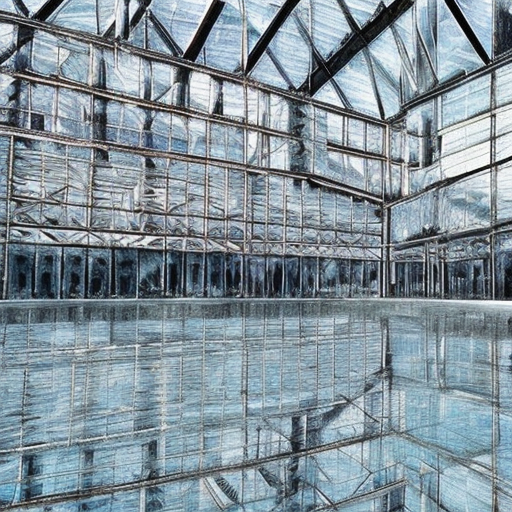One-line Summary:
PlayTime is a visually stunning French comedy directed by Jacques Tati. The film follows Monsieur Hulot as he navigates a futuristic Paris filled with modern technology and absurdity.
Main Cast and Crew:
- Director: Jacques Tati
- Writer(s): Jacques Tati, Jacques Lagrange
- Key Actors: Jacques Tati as Monsieur Hulot, Barbara Dennek as Barbara, Rita Maiden as Barbara’s Friend
- Music Director: Francis Lemarque
- Director of Photography: Jean Badal
- Producers: Jacques Tati, Robert Dorfmann
Plot:
Monsieur Hulot, a bumbling yet well-meaning character, finds himself in a futuristic Paris that is dominated by modern architecture and technology. As he wanders through the city, Hulot encounters various characters and gets caught up in a series of comedic situations.
One of Hulot’s encounters is with an American tourist named Barbara, who mistakes him for a high-ranking official. Hulot becomes smitten with Barbara and tries to impress her by taking her to a restaurant, but chaos ensues when the restaurant’s automated systems malfunction.
Throughout the film, Tati uses visual gags and physical comedy to highlight the absurdity of modern life. The film is largely dialogue-free, relying on visual storytelling and sound effects to create humor. Hulot’s interactions with the city’s architecture and technology serve as a critique of the dehumanizing effects of modernization.
Themes and Motifs:
One of the central themes of PlayTime is the contrast between tradition and modernity. Tati uses the character of Hulot, who represents a bygone era, to highlight the loss of human connection in a technologically advanced society. The film also explores the idea of the individual versus the collective, as Hulot struggles to navigate a city that prioritizes efficiency over personal interaction.
The motifs of repetition and symmetry are prevalent throughout the film. Tati uses these visual elements to create a sense of rhythm and order, even in the chaotic and absurd situations that Hulot finds himself in. The film’s meticulous set design and choreographed movements contribute to its unique visual style.
Reception and Legacy:
Upon its release in 1967, PlayTime received mixed reviews from critics and struggled at the box office. However, over time, the film has gained recognition as a masterpiece of visual comedy and a commentary on modern society. It has been praised for its innovative use of sound and its intricate set design.
Despite its initial commercial failure, PlayTime has had a lasting impact on cinema. Its influence can be seen in the work of directors such as Wes Anderson and Roy Andersson, who have adopted Tati’s visual style and deadpan humor. The film has also been recognized with several awards and nominations, including a nomination for the Palme d’Or at the Cannes Film Festival.
Recommendation:
PlayTime is a visually stunning and thought-provoking film that offers a unique blend of comedy and social commentary. It may not appeal to those looking for a traditional narrative, but for viewers who appreciate visual storytelling and clever humor, it is a must-see. The film’s meticulous attention to detail and Tati’s masterful direction make it a true cinematic gem.
Memorable Quote:
“I’m not a tourist, I live here.” – Monsieur Hulot












